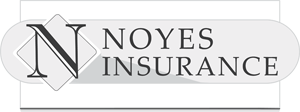NH Boat Insurance & Boating safety tips
Protect your boat with NH Boat Insurance, and Protect Your Passengers With These Safety Tips!
Get Your NH Boat Insurance Quote using our quick quote request form, below!
Part A: Docking, Launching & General Safety Tips
If your NH boaters insurance is your “plan b”, consider these safety tips your “plan a”. The goal is to avoid claims and exercise these techniques first. Claims can lead to an increased premium in the long run. Here at Noyes Insurance, we help our clients find loss control techniques that are realistic and will lend to affordable premiums into the future.
Try to keep losses at bay by using these safety tips on your water-related adventures.
General
- Take a Boating Safety Course. New Hampshire has a mandatory boating education law. Visit the NH Marine Patrol Bureau and make sure you’re in compliance.
- Always wear a personal flotation device when on the water. Remeber, you could be held liable for injuries sustained by a third party on your boat. Do your due diligence and require others to wear appropriate flotation devices – especially those that cannot swim and children.
- Do not swim near a marina since boaters cannot see you when they are trying to dock.
- Wear non-slip shoes on the boat and dock.
- Keep your boat in good condition with all equipment meeting New Hampshire safety standards.
- NEVER drive a boat under the influence or allow others to. It’s not worth the repercussions that could come from boating under the influence. You might as well wait until you’re safely back on dry land before cracking that beer.
- Add fuel to portable tanks on the dock only; never on the deck of your boat.
- To avoid a potential fire onboard, inspect fuel hoses and containers on a regular basis to prevent the escaping vapors from going into bilges. Also, check the wiring and all appliances on deck for damage frequently.
Docking
- Use forward and reverse at an idle speed when docking and moving your boat near the marina.
- Dock at a marina that has standpipes, fire extinguishers, good lighting, surveillance cameras and security measures in place.
- Have bumpers, mooring lines and boat hooks ready before docking.
- Keep all body parts in the boat until you have come to a complete stop.
- Tie the line that holds the boat against the wind first when docking.
Launching
- Novice boaters should practice towing and backing up in an obstacle-free space – like an empty parking lot – before their initial launch. This will give you a feel for towing your boat and maneuvering the trailer.
- Always set the parking brake on the towing vehicle.
New Hampshire Boating Safety and Compliance Resources:
New Hampshire Boater Safety Course
Boating in NH from New Hampshire Fish and Game
Official New Hampshire Boater Safety Handbook
New Hampshire Boating Laws & Rules on New Hampshire Department of Safety
New Hampshire State Boating Laws from the U.S. Coast Guard
Part B: NH Boat Insurance in Plymouth
Anytime you introduce something as unruly as water to a situation, there’s a chance for forces out of your control to cause unavoidable loss or damage.
Make sure you, your family and your boat are protected by a NH Boat Insurance policy that provides the coverage outlined below.
Boaters Insurance Overview
A small boat, such as a canoe or other un-motorized boat, is typically covered under the personal property portion of your homeowner insurance policy. If you own a larger, faster boat, you’ll need a separate NH boaters insurance policy. A typical boatowners insurance policy is designed to protect your boat, motor, equipment, and passengers. It affords similar coverages to those you typically have for your car
Liability
Two principal liability coverages are included:
Personal Liability
A boatowners insurance policy provides protection for legal liability and pays, up to the limit of your policy, the legal
obligations imposed upon you due to an accident resulting from the
ownership, maintenance, or use of your watercraft, including bodily
injury, property damage and legal defense.
Medical Payments
This pays medical expenses, up to the limits in the policy, including the insured’s boating-related medical expenses from
an accident arising out of the ownership, maintenance or use of the
boat.
Physical Damage
Physical damage coverage insures your boat, motor, boat trailer, boat equipment (anchors, oars, fuel tanks, life jackets, dinghies, tools, etc.) and other personal property against theft, accidental loss or
damages.
Additional Coverage Options
For added protection, consider the following additional coverage options:
Reasonable Repairs: Covers repairs incurred to protect covered property from further damage.
Emergency Service: Pays for reasonable costs that you incur resulting from specified emergency service to your boat, motor or boat trailer.
Wreck Removal: Pays the reasonable expenses you incur for any attempted or actual raising, removal or destruction of the wreck of your watercraft when damage is caused by an insured loss and removal or destruction is required by law
